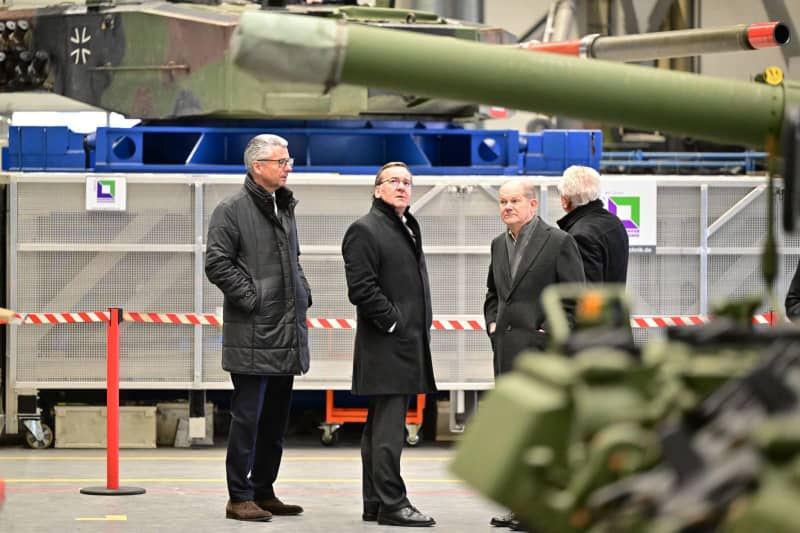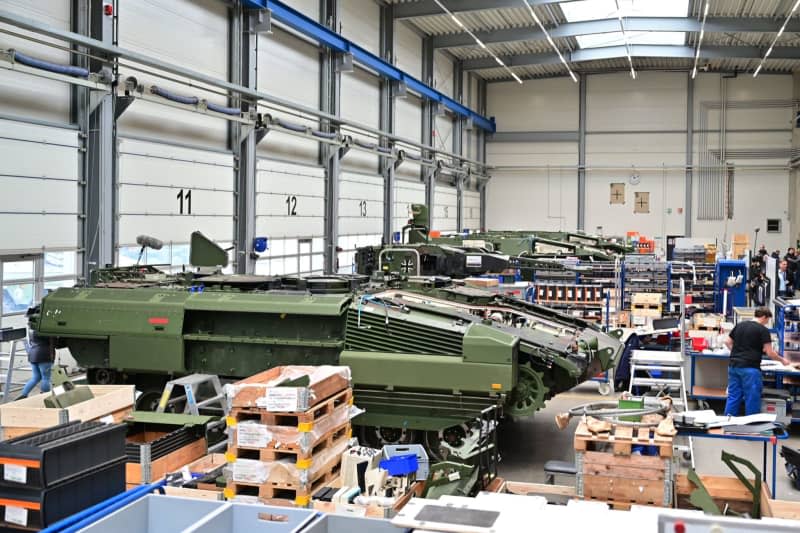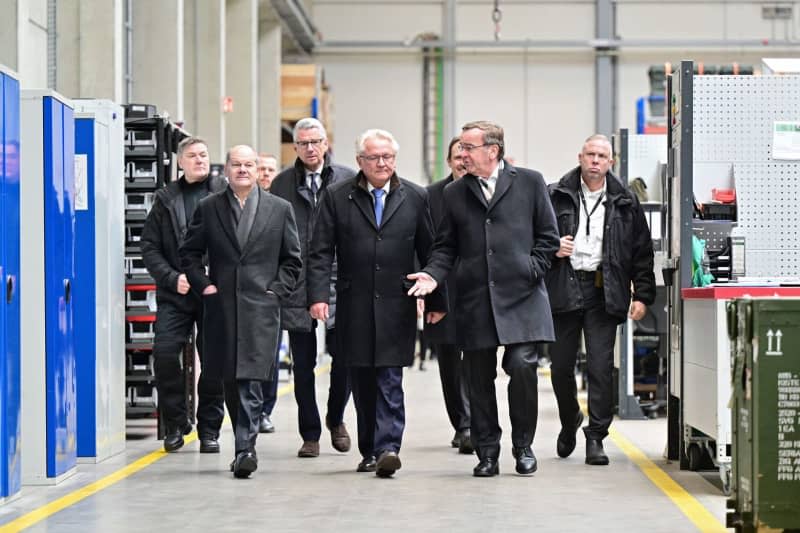Production at new Rheinmetall ammo factory to start early 2025

- Oops!Something went wrong.Please try again later.
- Oops!Something went wrong.Please try again later.
German defence contractor Rheinmetall plans to significantly expand its production of ammunition due to bottlenecks in procurement, the head of the company, Armin Paperger, said at the groundbreaking ceremony of a new factory on Monday.
Production at the factory in the small town of Unterlüss, north of Hanover, is to start as early as next year, Paperger said at the ceremony attended by Chancellor Olaf Scholz and Defence Minister Boris Pistorius.
"With this investment, you are laying the foundation for supplying the Bundeswehr and our partners in Europe with artillery ammunition independently and, above all, permanently," Scholz said.
This is particularly important with regard to Ukraine and its ammunition requirements, the chancellor added. "We have helped ourselves so far by supplying a great deal from stock," he said, adding that this is however becoming less and less possible.
"It is important that we do everything we can to increase production worldwide." Rheinmetall's new plant is an important signal in this regard, Scholz said.
Initially 50,000 artillery shells are to leave the new plant in 2025, followed by 100,000 in the year after and 200,000 per year later.
The plant will primarily produce 155-millimetre artillery shells, as well as explosives and components for rocket artillery. Rheinmetall plans to invest a total of €300 million ($323 million) in the new plant, creating 500 jobs.
Unterlüss is already a major production site for Rheinmetall. It is also where the Puma infantry fighting vehicle is manufactured, among other equipment.
Rheinmetall currently has 2,500 employees at the site.
On Monday morning, around 400 demonstrators gathered at the site to show their opposition to the plant. Numerous people tried to block access roads in Unterlüss, and farmers with around 300 tractors were involved, a police spokesman said.
Some sections of road were closed and there were obstructions, but: "You can get through the town," said the spokesman.
According to farmers' association Landvolk Niedersachsen, the farmers were mainly protesting against planned cuts in agricultural diesel subsidies.
The action group Peace Action Südheide also planned to demonstrate peacefully with a vigil of around 10 people against "armaments and war policy," a spokesman said. "What we want from the government is that it has a de-escalating effect," he said.
The war in Ukraine opened a new chapter for Rheinmetall's business. Its weapons and ammunition systems are in high demand as European countries seek to ramp up arms production for Kiev and replenish their own stocks.
The European Union admitted recently it won't meet its target of sending 1 million artillery shells to Ukraine by March.
Just days after Russian troops crossed the border into Ukraine in February 2022, Scholz pledged what he called a "Zeitenwende" - a "turning point" - in German defence policy.
Scholz announced a one-off rearmament programme worth €100 billion to upgrade the Bundeswehr in the interest of national and collective EU defence. But the sluggish pace of the enhancements has increasingly come under fire.



